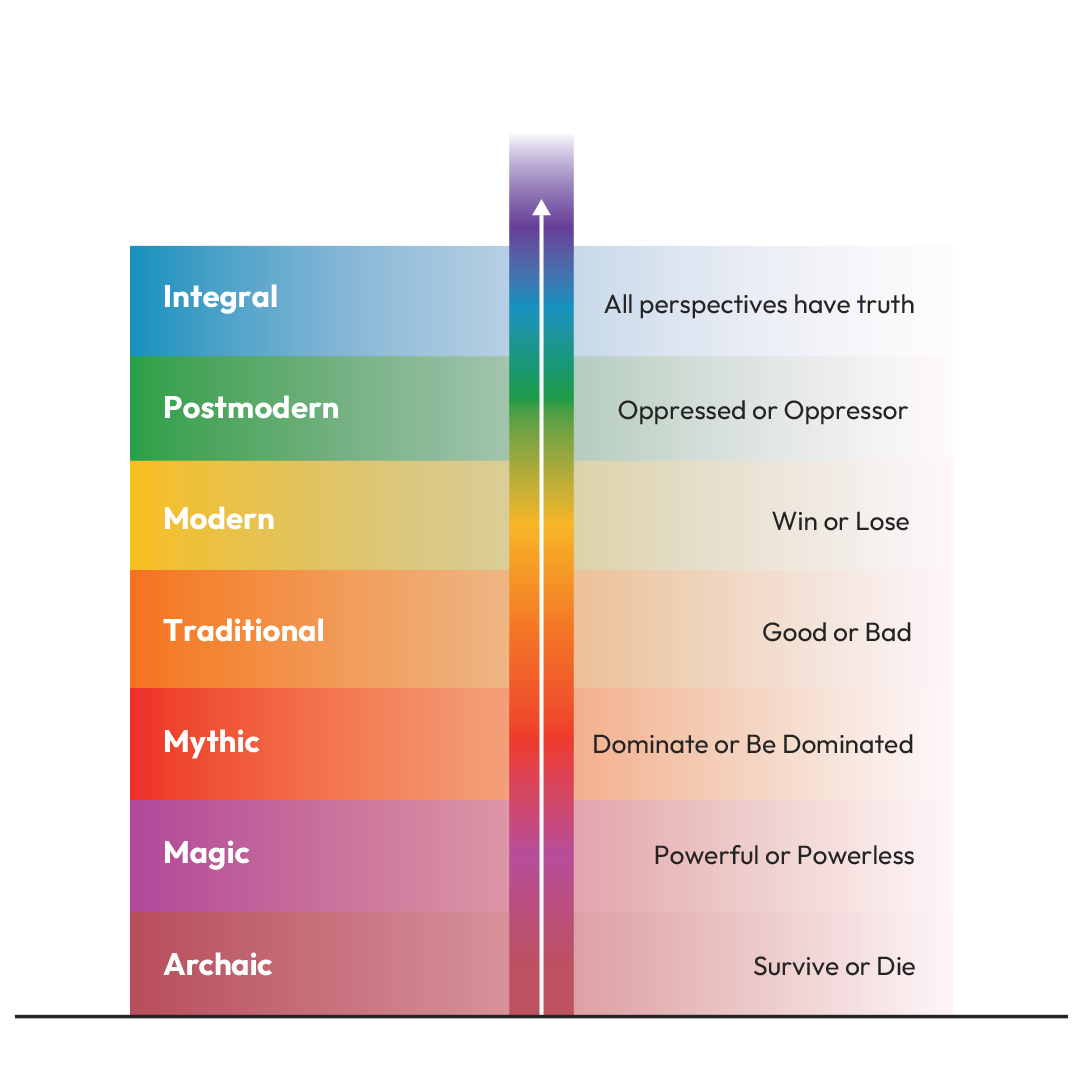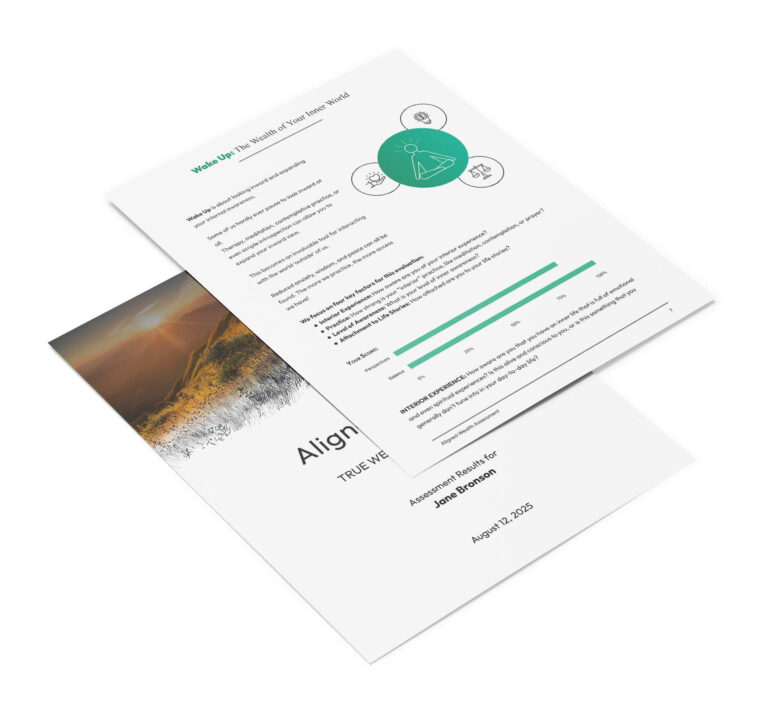Do you ever find yourself taking differences personally when you’re in the midst of an argument with someone and you can’t come to an agreement. Or maybe you double down on your own perspective and assume the other party is just plain wrong (or fill in the blank with the assumption or judgment of your choice).
No judgement here! The fact is we all do it.
It turns out that we are all part of an ongoing evolution in consciousness. Until recently, we never had a comprehensive view of this evolutionary process. Integral philosopher Ken Wilber studied an array of human development models, discovered key areas of overlap, and created a map that identifies six Stages of Development in the evolution of consciousness.
So differing opinions actually aren’t a “bad” thing. They simply express a worldview born from the primary level a person inhabits.
Grow Up offers a map so you can understand where you are, how you can evolve, and what your next steps might be if you choose to grow. Your circle of concern widens from self, to family, to community, to the world, and beyond.

Integral philosopher, Ken Wilber, studied an array of human development models, discovered key areas of overlap, and created a map that identifies seven Stages of Development in the evolution of consciousness. The stages unfold in each of us and in the world at large. They’re not just theory. The stages explain why people clash, why cultures evolve, and why compassion deepens when we see the bigger map.
Here’s a snapshot of the main stages. Keep in mind that our modern world is primarily organized across the Traditional, Modern, Postmodern and Integral stages:
Knowing your own stage and understanding others’ removes your blinders and allows you to relish the rich dynamics of culture. It helps to appreciate the beauty of others’ perspectives and gives you the tools to engage in dynamic relationships with people from all walks of life.

Grow Up is probably the toughest of the Essentials to understand—not because it’s abstract, but because the Stages of Development are “hidden maps.” The stages reflect our emotional and moral development. They’re like glasses you don’t even realize you’re wearing, quietly coloring everything you see.
Once you learn these maps, however, you begin to notice these stages of development everywhere—in your own choices, in cultural clashes, even in world events.
Ken Wilber discovered that the stages of human development mirror the stages of global history: the rules that shape one individual’s growth also drive the evolution of cultures and nations. That’s why understanding them can be life-changing: you gain the ability to take on new perspectives, move beyond judgment, and widen your compassion.

Here’s how it works: Take a few minutes to step back and see the big picture of your life. Ask yourself:
What stage or worldview feels most familiar to me right now?
Which perspectives shaped my family, my community, or my culture?
Can I recognize the stages alive in my workplace, my relationships, or even in the news?
Reflect on which stage most influences your choices today. You may notice pieces of yourself in several stages, but one will likely feel like home. That’s your gravitational center.
Knowing this gives you two powerful tools: compassion for yourself (you’re still growing, like all of us) and compassion for others (they are too). The more clearly you see the stages, the easier it becomes to step out of judgment and meet people where they are.

“Everybody—including me—has some important pieces of truth, and all of those pieces need to be honored, cherished, and included in a more gracious, spacious, and compassionate embrace.” — Ken Wilber

Take the True Wealth Assessment and find out which Essentials you’re strong in and where you need to focus. It only takes 10–15 minutes.
Join our newsletter to stay updated.
By subscribing, you agree to our Privacy Policy and consent to updates.
Spire Wealth Management is a Federally Registered Investment Advisory Firm. Securities are offered through an affiliated company, Spire Securities, LLC, a Registered Broker/Dealer, and member FINRA / SIPC. | DISCLAIMERS - Check the background of this firm on FINRA BROKERCHECK. - ADV 2B - For more information, visit https://www.spireip.com/